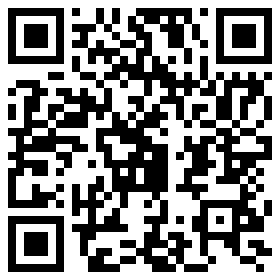When conducting international logistics transportation, everyone inevitably has to deal with various warehouses. For example, bonded warehouses, supervised warehouses, and ordinary warehouses.
Many people don't know the differences between these three types of warehouses, and what are their respective characteristics?
1. What is a bonded warehouse?
 A bonded warehouse refers to a warehouse approved by customs and established for the import of goods, which is not subject to customs laws and import control regulations. Imported goods stored in bonded warehouses can be modified, graded, sampled, mixed, and reprocessed within the warehouse upon approval. If they need to be re exported, they are exempt from tariffs. If they need to enter the domestic market, tariffs must be paid.
A bonded warehouse refers to a warehouse approved by customs and established for the import of goods, which is not subject to customs laws and import control regulations. Imported goods stored in bonded warehouses can be modified, graded, sampled, mixed, and reprocessed within the warehouse upon approval. If they need to be re exported, they are exempt from tariffs. If they need to enter the domestic market, tariffs must be paid.
The storage period of bonded warehouse goods is clearly defined by various countries. In addition to facilitating the needs of traders, the establishment of bonded warehouses can also promote transit trade.
Its functional positioning is three major functions of "bonded warehousing, export processing, and transit trade", and it enjoys the policy of "certificate exemption, tax exemption, and bonded".
2.What is a customs supervised warehouse?

Customs supervised warehouses refer to import and export, transit, transshipment, and clearance goods that have been approved by the customs and are subject to customs inspection, as well as bonded goods and other inbound and outbound goods that have not completed customs procedures.
Some of these warehouses are managed by the customs themselves, but with the increase of import and export business, the customs, as an administrative management agency, have many inconveniences in self operation. They are basically handed over to specialized warehousing enterprises for operation and management, and the customs exercises administrative supervision functions.
In fact, bonded warehousing is also a type of bonded storage, with functions similar to bonded areas in foreign countries. It mainly stores goods and luggage that are picked up by everyone after entering the country, or goods that arrive without certificates, have incomplete documents, incomplete procedures, or violate customs regulations, and are not allowed to be released by the customs. Goods that need to be temporarily stored in customs supervised warehouses waiting for customs processing.
Goods stored in customs supervised warehouses have two deadlines. If they are stored for more than 14 days without declaration, customs will impose a late declaration fee; If the goods are not extracted for more than three months, they shall be deemed to have been abandoned, sold in accordance with the provisions of the Customs Law of the People's Republic of China, and the funds shall be returned to the national treasury.
3. What is a regular warehouse?

A regular warehouse is a warehouse for general daily industrial products or agricultural and sideline products that do not require special storage conditions.
The technical facilities of this type of warehouse are relatively simple, with only general equipment such as entry and exit, loading and unloading, handling, commodity maintenance, safety and fire prevention, etc., without the need for special equipment such as insulation, refrigeration, air conditioning, antivirus, etc.
Only products with stable physical, chemical, and biological properties that do not interfere with each other can be stored, such as daily necessities, knitwear, hardware, medical equipment, soil products, etc.
Due to its strong adaptability and high utilization rate, regular cabins have become the most widely distributed, significant, and widely used conventional warehouses in the warehousing network.
4.What are their respective advantages?

The price of a regular warehouse is relatively low, and it is also the most common type of warehouse, which is very suitable for storing goods and transferring goods, and is deeply loved by the public.
If products from bonded warehouses are re exported, they will be exempt from customs duties; If the goods have entered the domestic market, customs duties need to be paid. It can save a lot of expenses.
A regular warehouse costs less than a bonded warehouse, but if the goods are stored for a long time, storing them in a bonded warehouse can save a lot of rental fees. However, if the goods are stored in a customs supervised warehouse for more than 14 days without declaration, customs will charge a late declaration fee.
The supervised warehouse is responsible for inspecting import and export, transit, transshipment, customs clearance goods, as well as bonded goods and other inbound and outbound goods that have not completed customs procedures.
Supervised warehouses help prevent international and domestic goods from being mixed with import and export goods. Equipped with comprehensive fire and theft prevention measures.
Source: Souhang Network






